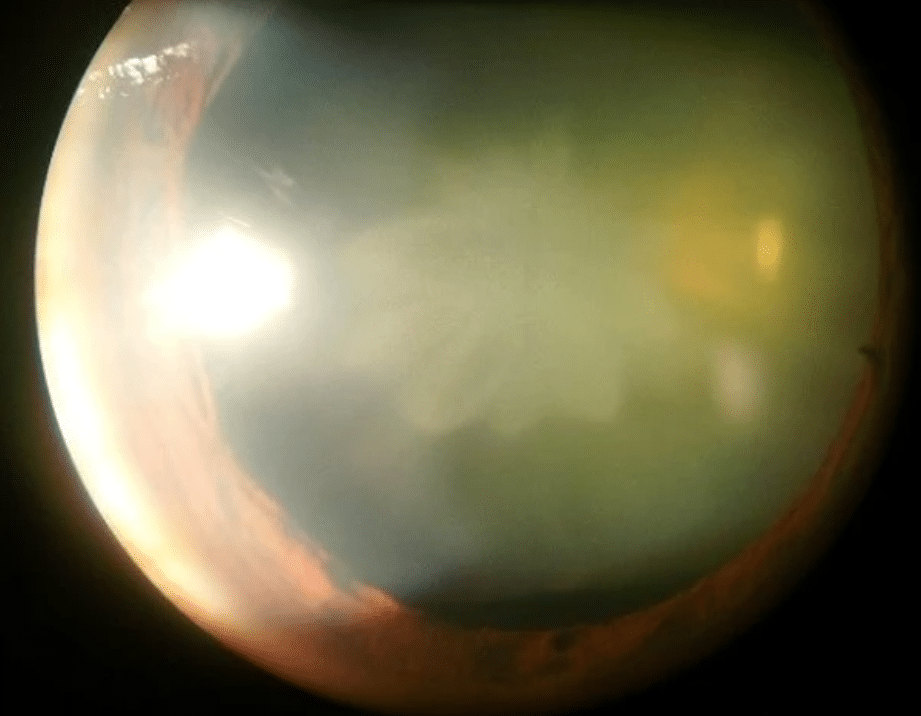The surface of my eye seems to be cloudy
Does the surface of your eye look cloudy? Or are you experiencing the sensation of cloudy vision? Both can affect your everyday activities and impact the quality of your eyesight. It’s important you have an idea of the possible causes before you get your eyes checked out by a specialist. So what are the potential causes of cloudy eyes?

Dry eye syndrome
If you have a problem with the tear layer in your eye, you might find you don’t produce enough tears or they evaporate too quickly. You may even find the consistency of your tears has changed. Bacterial infection or a blockage can cause a problem in your tear ducts leading to a cloudy film across the eyeball. This may be improved in the short term by using artificial tears or drinking plenty of water and then having a good blink.
Swelling of the cornea
The clear covering of your eye is called the cornea. If the cornea becomes infected, it can cause cloudy vision. Swelling and infection are commonly caused by scratching, eye infections, contact lenses that are tight or have been worn too long or hereditary corneal disease.
Glaucoma
Glaucoma is another problem associated with the cornea and is caused by excess pressure in the eye. When fluid no longer drains correctly, the surface of the eye starts to appear cloudy. Glaucoma must be treated promptly as any eye damage is irreversible. The condition is generally treatable with eye drops, tablets, and laser or conventional surgery, though the cloudiness can take a few months to clear completely.
Cataracts
If your vision becomes cloudy, it may be due to damage of the retina at the back of the eye. People living with diabetes or taking steroid medication are at increased risk of cataracts, but they can also be associated with ageing and eye injuries. Cataracts can be treated with new glasses or anti-glare sunglasses. If that doesn’t help then you’ll need surgery to remove the old cloudy lens and replace them with artificial ones.
Should I see an optician
Most causes of a cloudy film in the eye will clear up naturally. However, if you’re experiencing changes in your vision then you will need to have your eyes checked by your local optician. They’ll be able to pinpoint the exact problem and suggest an appropriate course of treatment that will deal with eye cloudiness. If you experience a sudden loss of vision then see an optician immediately.
Related articles





